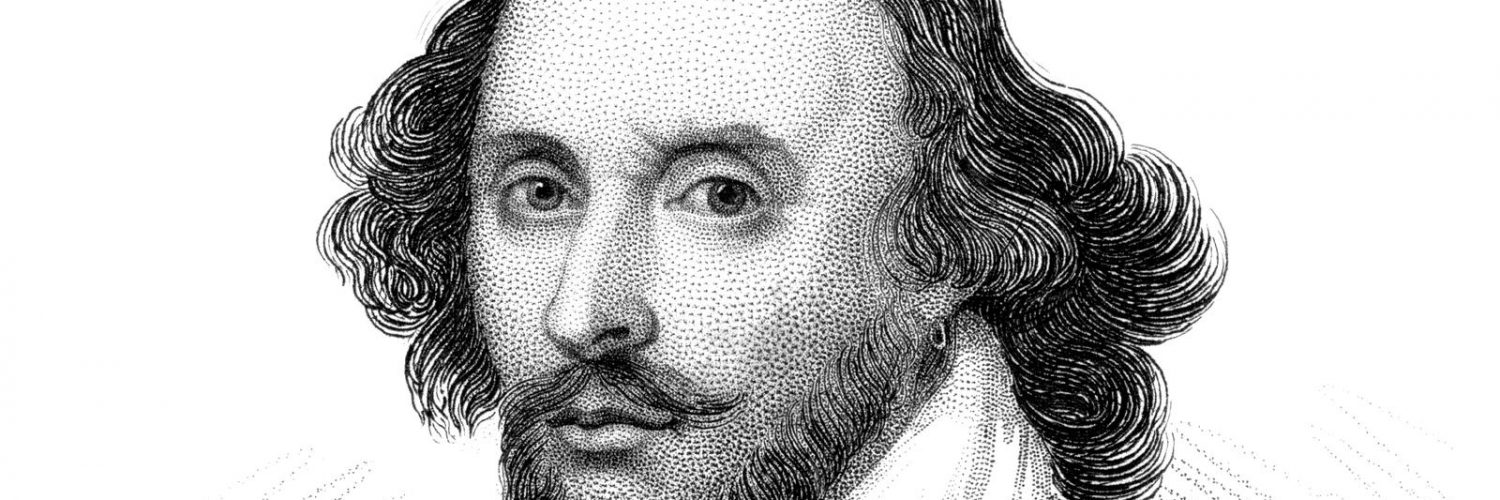Preface
Literary criticism on Shakespeare’s work has been pouring in continuously for over four centuries. Scholars and students of literature surely have read some of it. But my attempt is to view his work from the Indian viewpoint. I had earlier written on Shakespeare in Telugu for Telugu readers, and now I am attempting to redo the work in English for a wider reach. The present work however is not a translation of the Telugu work, but is an independent effort retaining its salient aspects.
I tried to connect some aspects of Shakespeare’s plays that recall incidents and passages in Indian literature,as I have done in my other works in the Indian Introduction Series. This may be like watching a kind of joint literary performance by world artists , showing that literatures that seem to belong to different worlds are indeed one. This connecting of literatures is done only when there is a compelling comparison,and done without undue intrusions in the main work on Shakespear. The emphasis is, however, less on individual instances of comparison than on the view of life that unites them. Literatures of the world unite!
In the present work I have chosen, besides the famous four tragedies of Shakespeare , The Tempest and the final scenes of Pericles.I chose however to take them in the reverse chronological sequence, starting with Pericles and finishing with Hamlet. All these plays were written between 1601 and 1612.
These essays have no other purpose but the sheer enjoyment of the supreme art of Shakespeare.
1.Periclese, Prince of Tyre
It is a famous fact that in blending comedy with tragedy Shakespeare has no rival in world literature. Comedy is never a separate track In his most tragic plays.It is intricately woven into the tragic theme, deepening the subject without ceasing to amuse. While in his earlier phase of writing he wrote separate tragedies and comedies, later the astonishing blend of the two, and in his final phase, Shakspere wrote what are usually referred to as dark comedies. And Pericles is one such dark comedy. Unlike Ben Jonson’s plays, Shakespeare does not merely expose the contemporary social fallacies, but transforms them into timeless truths, in a social milieu he creates. “Pericles” is usually said to belong to the group of dark comedies, but it transcends both, and has nearly attained the status of a divine comedy. And, it may be said, in some aspects, it resembles Kalidasa’s play, Abhijnana Sakuntalam, a world classic.
It is believed that “Pericles” was not entirely the work of Shakespeare, and and that he had revised the final scenes of an existing play. But those scenes are enough to deserve our close reading. Here, I have not attempted to present Pericles as a whole. We shall focus on the last scenes of the play, poignant, and epiphanous. This play displays familial relations, from the lowest to the loftiest. From the pit the tip looks more awesome.
Pericles is the ruler of Tyre. He had to flee his country, for a neighbour prince wanted to kill him, for Pericles had knowledge of his daughter’s illicit affair. After such knowledge, what forgiveness? It proves fatal to know such secrets. Pericles left his kingdom In the charge of a trusted follower, and fled. Much of the story of this play happens on seas and ships. Everything in the play happens during the ruler’s exile. While on sea, his wife delivers a girl child, and dies. And Pericles consigns his wife’s coffin in the sea. ( It was in the final scenes of the play that Pericles learns to his delight that she was indeed alive.) He leaves his child, Marina, in the charge of a couple. The woman who brought her up grew jealous of Marina’s good nature and beauty, In comparison with her own daughter. The woman attempted to have Marina killed. During that attempt some pirates kidnapped Marina, and sold her to a brothel. Marina managed with his good nature to escape from all the attempts of the brothel to introduce her into that profession. She talked to the clients out of their evil ways.
Once, the governor of the city visits the brothel for its services, and was sent to Marina. She told him that she was not into that profession, and told him that she wanted to lead an honest and honourable life, and also sought his help in getting out of that place. The governor realising that she came from a noble family, gave her enough money to enable her to live an honourable life outside.The brothel-keeper
had entertained high hopes of a regular rich client when the governor visited her place, but when Marina turned him out too, she was enraged, and asked one of her pimps to ‘unvirgin’ her. Once deflowered, she will have to come to their ways, she thought. The pimp, Boult, was a professional in that, and he assures the madam: “And if /She were a thornier ground than she is, she shall be ploughed.” Marina manages to convert even that wretch, and he is transformed into a virtuous person. It is this innate goodness that Pericles later referred to, “ smiling/ Extremity out of act.” She would immobilise the uplifted dagger with her smile. She offered Boult the money the governor had given her, and tells him to start living honourably. She also asks him to find an honourable job for her. She could teach music, she could knit. She left the brothel house, and lived a respectable family. And the play reaches its climax here.
Pericles was told by the couple that was given charge of his daughter that she had died. Pericles, having lost his kingdom, his wife, his child, and his wits, wandered about , from place to place. Accidentally, he meets Marina, but doesn’t recognise her as his daughter. The meeting of the father- daughter, and the father’s gradual recognition ( pratyabhijna ) of his daughter, is the high point of the play. It is among the most moving in all world literature, even laying claims to surpass “King Lear” in its poignancy . This climax scene takes place on a ship, in the presence of the governor who had earlier helped Marina. The slow process of Pericles’s regaining his nearly lost speech, his step by step recognition of his dear daughter believed dead, the joy of recognition,rising to epiphanic levels, make this scene one of the finest achievements of Shakespeare, and world drama.
We shall follow that gradual course of slow recognition ( pratyabhijna ), from near oblivion to indistinct memories, to hope, to warmth, to doubt, to excitement,to turmoil, to ecstasy bordering epiphany. (“This is the rarest dream that e’er dull sleep/ Did mock sad fools withal.”) It was a still lake of a dream with ripples of reality whirling, until they gain stillness. Shakespeare leads us step by step, in this process of pratyabhijna :
“Pericles:
“Pray you, turn your eyes upon me.
You are like something that – What country-woman?
Here of these shores?”
The first words breaking out of the dumb grief, of an indistinct recollection : “You are like something that-”, “something”, not even “somebody”. It takes time for the “thing” to gain life.
Periclese:
I am great with woe, and shall deliver weeping.
My dearest wife was like this maid, and such a one
My daughter might have been: my queen’s square brows;
Her stature to an inch; as wand-like straight;
As silver-voiced; her eyes as jewel-like
And cased as richly; in pace another Juno;
Who starves the ears she feeds, and makes them hungry,
The more she gives them speech. Where do you live?”
Memories are slowly gaining distinctness. It starts with the resemblance to his wife, an extended resemblance. His daughter would be like her, if she were alive. Her “square brows”; “Her stature to an inch”- Pericles is inching to accuracy ; her stature; her golden voice; her jewel-eyes, as beautifully cased; her silver voice; her speech that “starves the ears she feeds”,( this is as much about his love for his lost wife as about the daughter . And what better excuse to speak of his love for his wife than now, speaking of his “daughter”? )
Indistinct memories are gradually gaining clarity. First, he sees the similarities of his wife in the figure before him: “My dearest wife was like this maid, and such a one/My daughter might have been”.
From this broad identity of figures, he moves on to gain more details: “my queen’s square brows”, and “inching” towards greater accuracy : “ to an inch”. He is gaining clearer recognition: her stature, her jewel- like eyes, her silver-voice. The silver-voice is not just a physical quality, not just a voice that is pleasant to the ears, but one that touches one’s very soul, “starves the ears she feeds, and makes them hungry.”
“Prithee, speak:
Falseness cannot come from thee;for thou look’st
Modest as Justice, and thou seem’st a palace
For the crown’d Truth to dwell in:”
From form, the father moves to the content of the figure before him. Marina is now to him not a shape, she is a spirit, “a palace/For the crown’d Truth to dwell in”. He moves closer to her:
“Tell thy story;
If thine consider’d prove the thousandth part
Of my endurance, thou art a man, and I
Have suffer’d like a girl: “
No, his child is on a higher plane than he is. In comparison, he has been a girl in facing his adversity, whereas his child has shown manliness. Shakespeare doesn’t stop here in raising Marina. Literally, Shakespeare performs magic before our eyes:
“yet thou dost look
Like Patience gazing on kings’ graves, and smiling
Extremity out of act. “
“Patience gazing on kings’ graves”. Kings, who? Graves, whose? How many kings, and kingdoms, and their tombs has Marina watched in her young life? Marina is now not Pericles’s child. She is not a person. She is Time. Kings come and go; kingdoms are raised and razed. Time watches. Marina watches undisturbed. This is her spiritual state. As an individual,she is not unconcerned. She wards off any adversity with a smile: “smiling/Extremity out of act.” Any adversity is rendered actless, “out of act”.Her smile is enough to render the adversary ineffective. Marina is now not on the Earth, not an earthling, but an angel. She doesn’t however cease to be her father’s darling. And Pericles is growing in her, with her.
We have seen with what kind of father-daughter relationship, its illicit nature that sparked the play. (Pericles had to flee his kingdom because of his knowledge of the illicit relationship of a father- daughter .) Now we have something like its atonement in Marina- Pericles angelic filial bond. This is as high as Shakespeare goes, or anyone for that matter. It is usually, rather glibly,observed that Shakespeare has width, but not Dante’s depth. The recognition ( re-cognition, pratyabhijna) scene in Pericles is among the most moving in all literature. It can even be said that “Pratyabhijnana Sakuntalam” of Kalidasa may have many merits, but is no match to this moving scene.
***
The play doesn’t end here however. There remains the more important union of Pericles and his supposedly dead wife.It is Shakespeare’s counterpart of Kalidasa’s Sakuntalam. Sakuntala was as good as dead for Dushyanta. Like calamities, happy events too do not come in singles. Pericles is overjoyed with the meeting of his daughter. And now he will meet his wife,Thaisa. Goddess Diana had saved her , and she lived a nun’s life, was the chief priestess in Diana’s temple, (very much like Kalidasa’s Sakuntala in a hermitage),until after fourteen years when she happened to meet Pericles. And how did Pericles recognize her? Again,as in Kalidasa’s play, through a ring:
“The king my father gave you such a ring.”
***
There are a couple of expressions in Pericles that seem like echoes from Shakespeare’s Sakuntalam. The governor who visits the brothel where Marina was kept was told by the pimp,Boult that he will would provide him with the services of a flower whose fragrance had not yet been inhaled by any ( anaaghraatam pushpam:).
***









Add comment